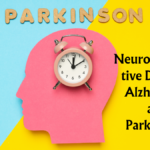8 Complications of a Heart Attack: Understanding the Risks
A heart attack, or myocardial infarction, can lead to a range of serious complications that impact both short-term recovery and long-term health. This article explores eight common complications that may arise after a heart attack, including heart failure, arrhythmias, cardiogenic shock, and more. Understanding these risks is essential for patients and caregivers to navigate the recovery process and seek appropriate medical care. Learn about the symptoms, causes, and management strategies for these potential complications to ensure a better path to recovery.
8 Complications of a Heart Attack
Heart attacks can cause a variety of complications, some immediate and some that develop over time. Here’s a detailed look at the key complications that can arise after a heart attack:
1. Heart Failure
Heart failure doesn’t mean that the heart has completely stopped working. It’s a condition where the heart cannot pump enough blood to meet the body’s needs. This results in insufficient oxygen-rich blood reaching organs such as the brain, lungs, kidneys, skin, and nervous system, leading to various symptoms and complications:
– Swelling in veins of the arms, legs, abdomen, and neck.
– Shortness of breath, especially during physical exertion.

2. Valvular Heart Disease
Valvular Heart Disease occurs when the heart valves, which ensure one-way blood flow, don’t function properly. There are two main types:
1. Valvular Stenosis: Valves become narrowed, stiffened, or blocked, making the heart work harder.
2. Valvular Insufficiency (Regurgitation): Valves don’t close properly, causing blood to leak backward.
These conditions can be congenital or acquired due to infections, lifestyle factors, or aging. Common issues include:
– Mitral Valve Prolapse: Affects 1.5% of the population; often harmless unless complications arise.
– Endocarditis: Caused by bacterial infections that damage heart valves.
– Rheumatic Fever: Can inflame valves if a strep infection is untreated.
3. Cardiogenic Shock
Cardiogenic shock occurs when the heart suddenly can’t pump enough blood, usually due to severe heart damage from a heart attack. It’s a rare but life-threatening condition that requires immediate medical attention.
– Causes very low blood pressure and insufficient blood flow to vital organs.
– Responsible for a significant number of deaths related to heart attacks.
4. Vasodilatory Shock
Vasodilatory Shock is characterized by the sudden relaxation of blood vessels, causing dangerously low blood pressure. It can result from:
– Severe bacterial infections (septic shock).
– Allergic reactions (anaphylactic shock).
– Nervous system damage.
This condition deprives organs of oxygen and, without immediate intervention, can lead to permanent organ damage or death.
5. Pulmonary Embolism
A Pulmonary Embolism is a blockage in the pulmonary arteries of the lungs, often due to blood clots travelling from the legs (deep vein thrombosis). It restricts blood flow to the lungs and can be fatal without prompt treatment. Prevention focuses on reducing blood clot formation.
6. Arrhythmias
Arrhythmias are irregular heartbeats—too fast, too slow, or erratic. They can sometimes lead to sudden cardiac arrest (SCA), a condition where the heart stops beating altogether, causing unconsciousness and death if not treated immediately.
7. Broken Heart Syndrome
This syndrome mimics heart attack symptoms but is triggered by extreme emotional or physical stress. Unlike heart attacks, it:
– Shows no coronary artery blockage.
– Often resolves quickly, within days or weeks.
8. Myocardial Aneurysm
Myocardial Aneurysms occur when blood vessels weaken, swell, and fill with blood, often forming after a heart attack. Symptoms include fatigue and low stamina. Blood clots within aneurysms can pose severe risks, like stroke or limb damage if they travel through the bloodstream.
Conclusion
Heart attacks can lead to numerous complications, affecting different organs and body functions. Immediate and effective management of these conditions can significantly improve outcomes and quality of life for those affected.
FAQs
Q1: Can all heart attack complications be prevented?
A: Not all complications can be completely prevented, but lifestyle changes, medication, and regular check-ups can reduce the risk.
Q2: Is cardiogenic shock always fatal?
A: Cardiogenic shock can be fatal without prompt treatment, but with immediate medical intervention, about 50% of patients survive.
Q3: How is broken heart syndrome different from a heart attack?
A: Broken heart syndrome is usually triggered by stress, lacks blocked arteries, and recovery is typically faster compared to a heart attack.
https://en.wikipedia.org/wiki/Heart#Cardiac_arrhythmias






